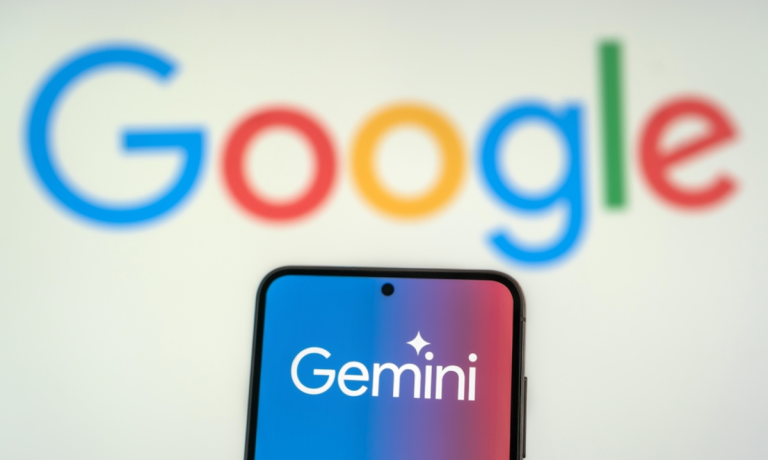Google has removed the head of Gemini as its AI chatbot continues to lag behind ChatGPT.
According to Semafor, Sissie Hsiao has stepped down to be replaced by Josh Woodward, the head of Google Labs who oversaw the launch of NotebookLM, the artificial intelligence (AI) tool that turns documents into two-person podcasts.
Google DeepMind CEO Demis Hassabis reportedly he told staffers in a memo that the change in leadership will “sharpen our focus on the next evolution of the Gemini app,” according to Semafor.
Hsiao told staff in a separate memo that her time atop Gemini constituted “chapter 1” of Bard — the Gemini chatbot’s old name — and now “chapter 2” will be turned over to Woodward, who will remain head of Google Labs.
Hsiao, who has been at Google for 19 years, will be taking a “short break” and returning to the company in a new role.
PYMNTS reached out to Google for comment but has yet to receive a reply.
Despite Google’s pioneering efforts in AI research — it invented the “transformer” model, which is the “t” in ChatGPT — Gemini has fallen behind its competitors.
OpenAI’s ChatGPT has a 74% market share among AI chatbots in the U.S. as of March 6, according to marketing company First Page Sage. This includes Microsoft Copilot, which uses ChatGPT as its underlying technology.
Separating the two, standalone ChatGPT has a market share of nearly 60% and Copilot comes in at 14.4%. Google’s Gemini is third at 13.5%. Gemini’s market share had been declining; it was at 16.2% in January 2024.
Fourth is Perplexity (6.2%), then Claude (3.2%), Grok (0.8%) and DeepSeek (0.7%).
Remember Yahoo?
Google’s position being far behind OpenAI is not something it’s used to — in search, it commands a nearly 90% market share as of March 2025, with Microsoft Bing a distant second at 4%, according to Statcounter.
Google now finds itself in a potentially similar position as Yahoo in the 1990s. Back then, Yahoo was the top search engine. Google, founded in 1998, began to gain ground to take over as the top search engine in the world. It still retains the title, but AI chatbots pose a big threat if people switch to them to do searches and answer questions.
Last October, Perplexity began positioning itself as a search engine. Its AI chatbot is actually powered by competitors’ artificial intelligence models, including OpenAI’s GPT-4 and Claude from Anthropic. In the same month, OpenAI introduced ChatGPT search to take a piece of Google’s pie.
Build a ChatGPT Rival in ‘100 Days’
Google’s lagging position isn’t for lack of trying.
After ChatGPT came out in late November 2022, Google already saw the potential impact to its business. In December of the same year, it tasked Hsiao to build a ChatGPT rival in 100 days, according to Wired.
Google was in “code red” mode. The AI pioneer was caught by surprise and now OpenAI had taken the lead. There were fears it would replace Google search, which made up 56% of Alphabet’s Q4 2024 total revenue.
Ironically, Google had an AI chatbot that was nearly as good as ChatGPT, but it was cautious about giving public access. Called LaMDA, the chatbot was so good a Google engineer was fired for saying it was sentient.
Hsiao’s chatbot project was codenamed Bard. It was built upon LaMDA but with an updated knowledge base and new safeguards. Uncharacteristic of Google, the company was rushing the project, labeling it “experimental” so the public might forgive its missteps. Bard, and the underlying LaMDA model, would both be renamed as Gemini.
Meanwhile, Google moved to organize its AI activities. The company merged Google Brain and DeepMind into one unit called Google DeepMind. Their goal was to build the world’s most powerful language model, according to Wired.
It did, with Gemini 2.5. Google DeepMind is also slowing down research releases to keep its AI secrets to itself longer, according to the Financial Times.
Can Google still win the AI race or — like Yahoo — is it too late since ChatGPT has captured the public’s attention?
The race isn’t over. Google’s decision to make Gemini multimodal — it can take and generate text, images and audio — is the path toward better reasoning as proven by the advancements in the company’s Gemini Robotics, according to Semafor.
Gemini’s multimodality is built from the ground up, unlike ChatGPT’s, which are bolted on. This capability can spawn a whole genre of consumer products for Google. Moreover, Google’s custom AI chips could help reduce cost of AI inferencing, which have been a hurdle to wider enterprise AI adoption.




